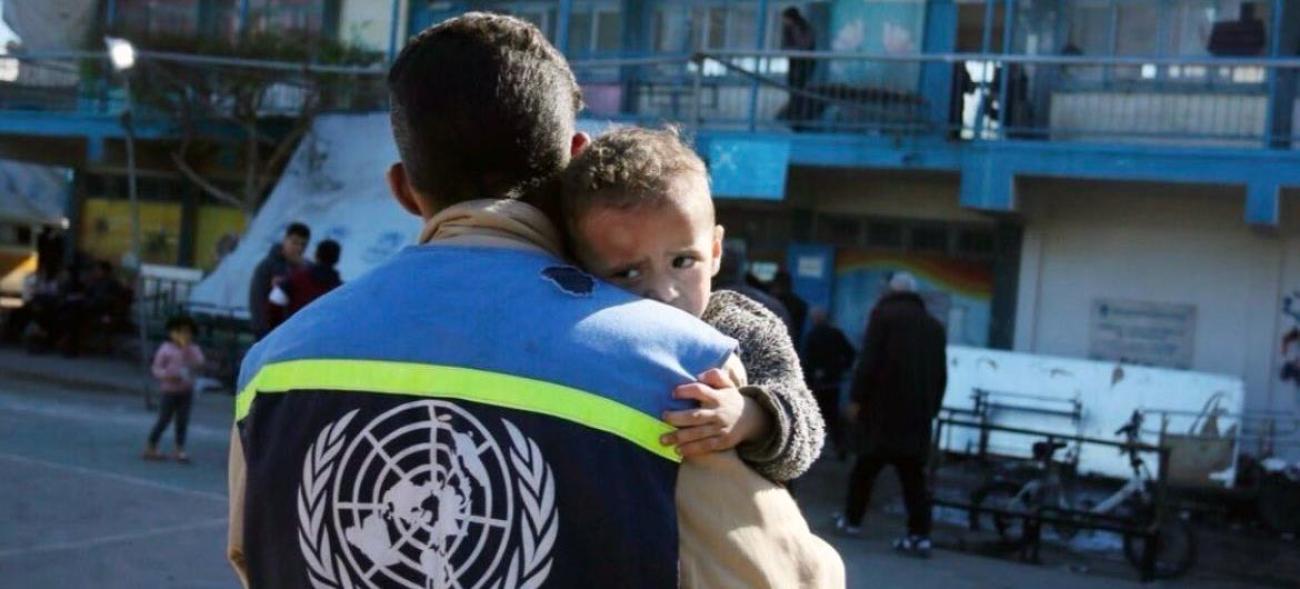Enough aid for 25,000 people has reached Gaza City for the first time in weeks, the UN World Food Programme (WFP) announced on MArch 12, in a call for daily aid missions and better access.
“WFP delivered enough food for 25,000 people to Gaza City early Tuesday in first successful convoy to the north since 20 February,” the UN agency said in a tweet. “With people in northern Gaza on the brink of famine, we need deliveries every day and we need entry points directly into the north.”
The news came as UN humanitarians also welcomed the announcement on Tuesday that an aid ship, Open Arms, had left Cyprus for Gaza carrying 200 tonnes of relief supplies. But they stressed that it was “not a substitute” for overland assistance to Gazans on the verge of famine.
“Any food and other emergency aid that comes into Gaza, as we all know, is desperately needed; there is no question about it,” said Jens Laerke, spokesperson for UN aid coordination office, OCHA.
“So, it's highly appreciated…But it's not a substitute for the overland transport of food and other emergency aid into Gaza and particularly northern Gaza. It cannot make up for that.”
The UN's Senior Humanitarian and Reconstruction Coordinator for Gaza Sigrid Kaag also welcomed the opening of the new maritime coordinator to Gaza, together with the head of UNOPS, Jorge Moreira da Silva.
"For aid delivery at scale there is no meaningful substitute to the many land routes and entry points from Israel into Gaza", the stressed.
"The land routes from Egypt, Rafah in particular, and Jordan also remain essential to the overall humanitarian effort. The maritime corridor brings, however, much needed additionality and is part of a sustained humanitarian response to provide aid as effectively as possible through all possible routes."
Children’s scissors denied
Underscoring the dire humanitarian emergency still unfolding in Gaza, head of the UN agency for Palestinian refugees, UNRWA, condemned the refusal to allow so-called “dual-use” items destined for the enclave.
“A truck loaded with aid has just been turned back because it had scissors used in children’s medical kits,” tweeted Philippe Lazzarini, UNRWA Commissioner-General on Tuesday.
“Medical scissors are now added to a long list of banned items the Israeli Authorities classify as ‘for dual use’. The list includes basic and lifesaving items: from anaesthetics, solar lights, oxygen cylinders and ventilators, to water cleaning tablets, cancer medicines and maternity kits.
“The clearance of humanitarian supplies and the delivery of basic and critical items need to be facilitated and accelerated. The lives of two million people depend on that, there is no time to waste.”
Famine ‘imminent’
In a related development, UN World Food Programme chief Cindy McCain warned on Monday that famine is “imminent” in Gaza and will only be avoided if humanitarian there increases “exponentially”.
Speaking in Rome, the WFP Executive Director underlined grave concerns for people “across Gaza, particularly the north, which is in the grip for humanitarian catastrophe.
“If we do not exponentially increase the size of aid going into the northern areas, famine is imminent.”
Ahead of Tuesday’s announcement that aid had reached northern Gaza, the veteran aid official explained that WFP had been forced to pause aid deliveries there owing to concerns “for the safety of our staff and due to the complete breakdown of law and order”.
The UN agency head insisted that all options were being explored to alleviate the hunger crisis in northern Gaza, including air drops, but “they will never deliver the necessary volume that road access can”.
Road access “and the use of existing ports and crossings is the only way to get aid into Gaza at the scale that is now required,” the WFP chief insisted. "We need 300 trucks of food entering Gaza every single day."
UNRWA Ramadan campaign
Amid the humanitarian crisis, UNRWA on Tuesday launched its annual Ramadan campaign to provide emergency food aid to Gaza.
The campaign will run through the end of the holy month and provide 100 per cent of Zakat contributions directly to internally displaced people in the Gaza Strip who are facing starvation.
Zakat contributions – almsgiving which is one of the five pillars of the Islamic faith - will also go to eligible Palestinian families in the region through emergency food and cash assistance, the agency said.







